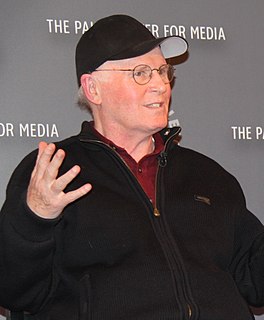A Quote by Richard L. Evans
In answer to the question, "Shouldn't the commandments be rewritten?," someone thoughtfully replied, "No, they should be reread."
Quote Topics
Related Quotes
In the Marquette Lecture volume, I focus on the question in the title. I emphasize the social and political costs of being a Christian in the earliest centuries, and contend that many attempts to answer the question are banal. I don't attempt a full answer myself, but urge that scholars should take the question more seriously.
To be a scientist you have to be willing to live with uncertainty for a long time. Research scientists begin with a question and they take a decade or two to find an answer. Then the answer they get may not even answer the question they thought it would. You have to have a supple enough mind to be open to the possibility that the answer sometimes precedes the question itself.
Back when the Bible was written, then edited, then rewritten, then rewritten, then re-edited, then translated from dead languages, then re-translated, then edited, then rewritten, then given to kings for them to take their favorite parts, then rewritten, then re-rewritten, then translated again, then given to the pope for him to approve, then rewritten, then edited again, the re-re-re-re-rewritten again...all based on stories that were told orally 30 to 90 years AFTER they happened.. to people who didnt know how to write... so...
A dialogue is very important. It is a form of communication in which question and answer continue till a question is left without an answer. Thus the question is suspended between the two persons involved in this answer and question. It is like a bud with untouched blossoms . . . If the question is left totally untouched by thought, it then has its own answer because the questioner and answerer, as persons, have disappeared. This is a form of dialogue in which investigation reaches a certain point of intensity and depth, which then has a quality that thought can never reach.





































